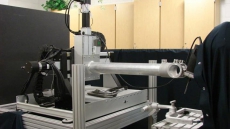Men with a history of cardiovascular disease may be more at risk of facing sudden cardiac arrest during or soon after sex, a study led by an Indian-origin researcher has revealed.
Sudden cardiac arrest (SCA) is when the heart suddenly stops beating. It usually occurs without warning.
The findings showed that although the incidence of SCA is very rare, survival rates in such cases remain low.
It is because, the partners failed to immediately perform cardiopulmonary resuscitation (CPR), which could save more lives, the researchers said.
"Even though SCA during sexual activity was witnessed by a partner, bystander CPR was performed in only one-third of the cases," said Sumeet Chugh, Associate Director at the Cedars-Sinai Heart Institute.
For the study, published in the Journal of the American College of Cardiology, the team examined records of more than 4,500 cardiac arrests over a period of 13 years in persons above 18 years.
Out of these only 34 were during or within an hour of having sex, and 32 of those were men, who were already taking drugs for heart conditions.
Patients who experienced sudden cardiac arrest related to sexual activity also had a higher rate of ventricular fibrillation/tachycardia than those who did not.
Only one-third of these SCA cases received bystander CPR. This low bystander CPR rate accounted for less than 20 per cent of patients who survived to hospital discharge, the researchers noted.
Moreover, some cases of SCA after sexual activity may also involve medications, stimulants and alcohol use, the researchers said.
"These findings highlight the importance of continued efforts to educate the public on the importance of bystander CPR for SCA, irrespective of the circumstance," Chugh added.





